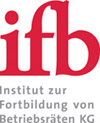 |
|
Welcome to issue no. 1 / 2010 of EWC News. 28th April 2010
|
|
The training and consultancy network
"euro-workscouncil.net"
EWC
News appears four times a year.
You can find past issues in the newsletter archives.
|
|
1.
Transposition
of the EWC Directive, current status
|
|
The government draft for the transposition of the new EWC Directive has been up for vote in the London parliament since April 6th, 2010. It was signed by the minister for employment relations on March 30th, 2010. Although the law will only come into force in June 2011, members of parliament must decide on the matter within 40 sitting days. A new House of Commons is to be elected on May 6th, 2010 and will hold its constitutional meeting on May 25th, 2010.
Following a public consultation, the Department for Business, Innovation and Skills (BIS) presented draft legislation on 19th November 2009 which fell far below the aspirations of trade-unions in key areas (see report in EWC News 4/2009). Altogether 44 associations, trade unions as well as members from seven European Works Councils with suggestions of their own, participated in the consultation which ran until February 12th, 2010.
No provisions for injunction against employers
Following consultation and renewed discussions with the European Commission in Brussels the ministry amended its draft. The definition of information and consultation was taken word-for-word from the new Directive. The British government, however, expressly avoids giving any injunction rights in the case of unsatisfactory consultation procedures; it merely raises the maximum fine from £ 75,000 (€ 85,000) to £ 100,000 (€ 114,000). The provisions of means for European Works Councils are not laid down in the law but defined in a set of non-binding guidelines provided by the ministry. Costs for European Works Councils
In an assessment, the ministry calculates the estimated costs arising for British companies from European Works Councils: the establishment of an EWC is estimated at £ 130,000 (€ 148,000) with running costs amounting to £ 175,000 (€ 200,000) per year. Out of this sum, £ 38,000 (€ 43,000) alone are allocated for trainings. British EWC bodies therefore position themselves considerably below the EU average estimation of £ 214,000 (€ 244,000) per year. According to a report from 2008, the costs for French EWC bodies are the highest (see report in EWC News 3/2008). Works council members who wish to familiarize themselves with the situation of employee representation in the UK subsequent to the House of Commons election have the opportunity during an EWC Seminar in Hamburg on January 25th, 2011. English interpretation will be available.
The European Trade Union Confederation’s (ETUC) group of experts on employee participation met in Brussels on March 1st, 2010. Delegates from the national organizations reported on the preparation for the EWC Directive’s transposition in their countries. The situation is as follows:
The greatest taboo seems to be the question of sanctions which the European Parliament was able to negotiate into the draft legislation at the last minute (see report in EWC News 4/2008). Should European Works Councils not obtain binding provisions for injunction against unsatisfactory information and consultation by central management (see report EWC in News 1/2008), they would remain "toothless tigers". This has always been the aim of the British government who openly supported the employer’s position during the revision procedure (see report in EWC News 4/2008). The rather restrictive attitude is unusual for countries such as Belgium, Sweden and Germany. The reluctance of the French government, which had vehemently campaigned for the new Directive (see report in EWC News 3/2008), is also unusual. It will be interesting to see how countries in Central and Eastern Europe position themselves. They are, apparently, waiting to see which attitude gains acceptance in Western Europe. The March 2010 newsletter on corporate company policy from the European Metalworkers’ Federation (EMF) provides further information on pages 3 – 4: |
|
2.
Outlook in specific
countries
|
|
Series of strikes in Greece
The "House of Prince" situated to the north of Copenhagen, in Søborg, is to be closed on January 31st, 2011. This long-established Danish company was bought by the British Group BAT (British American Tobacco) in 2008. The foodstuffs trade union, NNF, was able to negotiate the best social compensation plan ever in Danish history for the around 500 employees. It provides a compensation of one month’s salary per year seniority (with a minimum of 6) plus a bonus of 15%. Every dismissed employee is to benefit from a training program. On December 1st, 2009, another wage-rise of 4.5% was given. This very popular cigarette brand in Scandinavia (market share of 34% in Denmark) is to be manufactured in Bayreuth, Germany in the future. Following texts are available only in German:
A British employee forum measures the "temperature" of job satisfaction
Over the past two years, with the help of consultants, the bank’s employee representatives have developed a tool for measuring job satisfaction. In every business division they make a barometer which is updated monthly. All areas are assigned a green, yellow or red status. For the "Hot Spots" identified with red an action plan is then prepared. The chairwoman of the UK Partners' Council regularly presents a group level barometer to the company’s CEO.
French trade union landscape in turmoil
The legislation links the ability to negotiate within the company to the works council election results. Trade unions with less than 10% of the votes may still be represented in the works council but they lose their rights to negotiate company-level collective agreements. This can become an existential question for small trade unions since, in a system with no co-determination rights, all company matters must be settled through collective bargaining. The new legal standpoint is currently challenged in the courts (see report in EWC News 4/2009) but is already having an effect in practice: small trade unions are making alliances. Two examples follow:
German-French EWC specialist conference in Paris
|
|
3. Recent
Court rulings
|
|
4. Transnational
agreements on Employment policy
|
|
The European workforce of the Areva group’s electricity distribution division is to be given a 3 year employment guarantee following its sale to Alstom and Schneider Electric. The consultation of the Areva European Works Council was concluded on 7th January 2010 with this promise on behalf of both buyers’ managements. In September 2009 there had been protests against the sale simultaneously in eight European countries (see report in EWC News 3/2009).
To prevent any subsequent workforce reductions in Alstom and Schneider Electric, a similar agreement for all three French groups involved is to be negotiated. To this end, the three European Works Councils gave a mandate to the European Metalworkers' Federation (EMF) in Brussels which has already gained experience with such agreements. In July 2007, Schneider Electric had already reached an agreement on the anticipation and management of employment skills and socially responsible company policy (see report in EWC News 2/2007).
Two transnational agreements updated
Parcel service of the German post office quits Brussel hub
An agreement was signed on April 9th, 2010 between the central management of Econocom, the European Works Council and Belgian and French trade unions concerning the relocation of business activities to Morocco. It covers both the information and consultation procedures as well as severance packages ranging from two to ten months salary. Econocom has a 2,300 strong workforce in Benelux, France, Germany, Spain, Italy and in the UK and a European Works Council since 2007.
|
|
5.
New
European Works Councils
|
|
Post-merger: Copper producer now has EWC under German law
The twelve EWC members meet twice yearly. The four member select committee selected from different countries are to be consulted under extraordinary circumstances. Central management in Hamburg bears the costs for training and a permanent expert. Whereas the Norddeutsche Affinerie did not yet have any transnational employee representative body, Cumerio had had a EWC in place under Belgian legislation since 2006.
Dutch foodstuffs manufacturer establishes EWC
U.S. packaging manufacturer signs EWC agreement
This U.S. company employs around 5,500 employees from twelve EU countries, with over half from Poland. The EWC has members from Poland, Belgium, France, Italy and Spain. Countries with few employees are not represented. The definition of information and consultation is based largely on the new EWC Directive. |
|
6. Legal
structures and co-determination
|
|
First ever statistics on one-third participation supervisory boards
In comparison with figures on joint parity supervisory boards which have been regularly recorded for years (see report in EWC News 2/2009), the survey now available from the University of Jena is a novelty. It identifies almost 1,500 companies with one-third participation. On the other hand there are around 700 companies with joint parity supervisory boards. The data is of significance since many German companies, with just under the 2,000 employees, wish to avoid transitioning into joint parity co-determination by the conversion into Societas Europaea (SE). Although only 72 German companies have, as of 1st April 2010, opted in favour of the SE legal structure, this represents however more than half of the 136 SE in operation throughout Europe. This means of restricting co-determination rights is specifically highlighted in the business press (see report in EWC News 2/2008).
Besides transformation to SE status, foreign legal structures also offer a means of keeping employee representatives away from supervisory boards. The increase in this kind of co-determination dodging is on a percentage basis as high as that for the SE. The Hans Böckler foundation published an analysis on the subject on March 17th, 2010.
According to the report, the number of international companies which are excluded from German co-determination rights in the supervisory board, solely as a result of a foreign legal company structure, has increased to 37, as of November 2009. The largest company from this group is the U.S. packaging and courier company United Parcel Service (UPS) with around 15,000 employees in Germany. The airline Air Berlin, the textile retail chain Hennes & Mauritz, the haulage group Kühne + Nagel, the direct bank Cortal Consors and the McDonalds fast-food restaurant chain also belong to this group. Besides the British Ltd status, the U.S. Inc and the Dutch B.V. are often resorted to.
European Commission consultation on SE statute
The European Commission started a public consultation on the statute of the European Company (SE) on March 23rd, 2010. According to law, in October 2008, it should have already reviewed the directives on employee participation within the SE. The revision was, however, postponed (see report in EWC News 3/2008) and shall now be dealt with at the same time as the revision of the SE statute. The legal counselling firm Ernst & Young was commissioned by the European Commission and presented a report on the operation and consequences of the SE statute on 9th December 2009. The question of employee participation in the SE is however only marginally mentioned. |
|
7.
New SE
participation agreements
|
|
9. Focus on
social Europe
|
|
The Generali Italian insurance group’s EWC has recently put in place a home page of its own in three languages. Reports from EWC meetings, press releases and other important documents may be downloaded from the site. The Generali EWC agreement was updated in 2007 following European-wide protest demonstrations (see report in EWC News 1/2008). Sample selection of internet pages of European Works Councils in the financial community:
During a meeting on March 17th, 2010 in São Paulo (Brazil) the global trade-union organization for the services sector (UNI) together with delegates from twenty countries developed a campaign to persuade the two bank groups HSBC and Santander to sign an international framework agreement. A week of action had taken place previously in both banks in February 2010.
A new web site informs employees in the construction industry on all matters related to foreign posting. It was constructed by both trade unions and employers' federations in this industry. For each EU country, employee rights and obligations can be consulted, details on minimum wages, working time and occupational safety.
On March 29th, 2010, the European Commission introduced a salary calculator which determines the pay gap between men and women. Furthermore counselling centres are listed for all EU countries. The Hans Böckler foundation has also put on the internet a new web page on this topic (in German): We have arranged various further interesting web-pages into a collection of links.
|
|
11. New
publications
|
|
A research project at the Ruhr university in Bochum on European Works Councils in the motor industry has been in progress since 2007 (see report in EWC News 2/2007). The results are now available in book form. An English-language publication appeared under the title "European Works Councils in complementary perspectives" at the end of 2009, the German-language title "Transnationale Mitbestimmung?" will be available as of May 2010.
In January 2010, two legal commentary books on German Industrial Relations legislation were published with chapters devoted to cross-border works council work. The 122 page third edition of Franz-Josef Düwell's legal commentary deals with the European Works Councils and the SE legislation. The twelfth edition of Prof. Dr. Wolfgang Däubler comment also includes a 97 page chapter on EWC and SE law supplemented with a set of forms and a CD-ROM. Both commentaries have already taken into account the new EWC Directive.
In December 2009, the DGB training institute and IG-Metall trade union published together a country booklet on working conditions in Turkey. This is a completely revised version of the original edition dating from the year 2005. One chapter deals with the state of relations with the EU into which Turkey has been trying to negotiate its entry since 2005 (see report in EWC News 2/2007).
The London based group of lawyers with close union ties, Thompsons Solicitors, deals in the spring issue of its magazine "Labour & European Law Review" with consultation procedures in British companies. One article analyses the legislation from 2005 for information and consultation in the workplace which was the transposition of an EU Directive. Up till now however, this legislation was hardly ever used by British trade unions or employees. Further contributions describe the procedures for mass redundancies and transfer of business, where the legal situation in the United Kingdom was also improved considerably by EU legislation.
|
|
12. Training and Consultancy
Network "euro-workscouncil.net":
Examples of our work
|
|
Second advanced seminar for European Works Councils in Hamburg
The training and consultancy network "euro-workscouncil.net" invites European Works Council members to a second edition of its advanced seminar in Hamburg from January 25th – 26th, 2010. After the great success of the previous year (see report on the EWC advanced seminar in 2009) the event has been extended from one to two days. Altogether 43 participants, with EWC members from 26 companies, were able to follow the presentations given by speakers from both home and abroad.
The agenda of the first day dealt with the legal and practical problems of EWC work, the second day was completely devoted to the theme "participation à la française". This focus on France is to be continued in a German-French EWC conference in Paris on July 5th and 6th, 2010.
According to a survey carried out by the Hans Böckler foundation in February 2010 private suppliers and trade unions share the training market for works councils almost equally within Germany. In 2008 one in every five works council members, representing altogether 80,000 representatives, took part in training.
Under German legislation the costs of such training have to be borne by the employers. This could lead to the development of many private suppliers who would be increasingly in competition with the trade unions. Many such institutes have been created by experts with close ties to trade unions or former trade union officers. The market share for private suppliers is even higher in France. The Hans Böckler foundation had already reported on similar trends in a survey on works council consulting services in December 2007 (see report in EWC News 1/2008). The new survey has also reported on the training and consultancy network "euro-workscouncil.net”, that not only runs many in-house events but also publicly announced conferences and seminars since January 2009. Over 114 participants from 65 different companies have taken part including almost all trade unions affiliated to the DGB confederation.
Long-established company from Hamburg on the path to SE
Perfume groups SE works council wants to improve its work
Perfume brands such as Calvin Klein, Davidoff, David Beckham, Jil Sander, Joop and Lancaster come under the umbrella of the Donata Holding and its U.S. subsidiary Coty. As the world's biggest fragrance manufacturer Coty has branch offices in 16 EU countries, as well as Switzerland and Monaco. There was a European Works Council since 1996 which was replaced by a SE Works Council in 2007.
On January 29th, 2010 another edition of the Germano-Austrian ver.di and GPA EWC newsletter was published dealing with the transposition of the EWC Directive.
Further topics are covered such as: the Deutsche Telekom and IBM European Works Councils, the establishment of the EWC at SAP, the new supervisory board of the Münchner Rück insurance group, contacts between works councils of Interspar in Austria and Czechia as well as Internet and literature tips. The newsletter is developed in conjunction with the training and consultancy network "euro-workscouncil.net".
In the coming months the "euro-workscouncil.net" training and consultancy network in cooperation with partners from four other countries is organising a number of trainings on the new EWC Directive. The project is commissioned by UNI, the European trade-union organization for the services industry. |
|
13. Current
seminar schedule
|
|
Registration is open for the following seminars and workshops:
Sprachkurs Englisch für (Euro-)Betriebsräte 06. – 12.06.2010 in Eastbourne (England)
05. – 06.07.2010 in Paris
Specialists seminar in Hamburg for EWC members
24.01.2011 in Hamburg Employee representation in the United Kingdom subsequent to House of Commons election 25.01.2011 in Hamburg (each day can be booked separately)
Seminars from the Institute for further education of works councils (ifb)
Basic seminar: The path to the European Works Council 07 -- 11-06-2010 in Fulda 08 -- 12-11-2010 in Hannover
Advanced seminar: Practical knowledge, EWC special 14 -- 18-06-2010 in Erfurt 15 -- 19-11-2010 in Hamburg
In-house events Please find a survey of possible subjects of in-house events here: |
|
14. Imprint
|
EWC
News is published by: Training
and consultancy
network "euro-betriebsrat.de" GbR Von-der-Tann-Straße
4, D-20259 Hamburg www.euro-workscouncil.net (English) www.euro-ce.org
(French) Authors
collaborating on this issue: Werner Altmeyer,
Bernhard Stelzl Distributor
of the German
version: 13,412 readers Distributor of
the English version: 1,756 readers Distributor of
the French version: 1,655 readers Newsletter
archive: www.ewc-news.com
We
are always pleased to
receive comments and suggestions in relation to this newsletter as well
as reports on your EWC activities. Please write us at: info@euro-workscouncil.net
www.euro-betriebsrat.de (German)














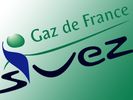




 On
February 2nd, 2010, the Hans Böckler foundation published for
the first time figures and data on the development of supervisory
boards with a one-third participation of employee representatives. This
ruling is valid for companies in Germany with between 500 and 2,000
employees, and joint parity co-determination starts with more than
2,000 employees.
On
February 2nd, 2010, the Hans Böckler foundation published for
the first time figures and data on the development of supervisory
boards with a one-third participation of employee representatives. This
ruling is valid for companies in Germany with between 500 and 2,000
employees, and joint parity co-determination starts with more than
2,000 employees.



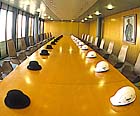



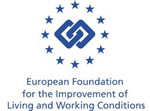 A Dublin foundation
investigates labour relations
A Dublin foundation
investigates labour relations



 Tool
against wage discrimination
Tool
against wage discrimination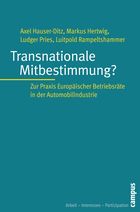
 New legal comments on German
EWC and SE legislation
New legal comments on German
EWC and SE legislation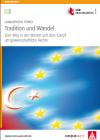


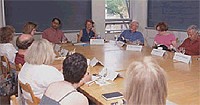



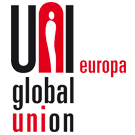 EWC training project
started
EWC training project
started
